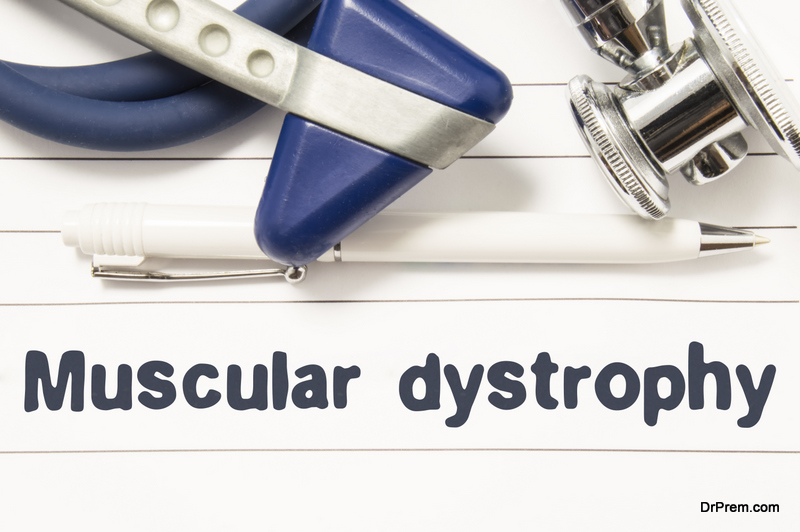Top Prevention
1. Physiotherapy
Physiotherapy can be introduced at early stage as a routine. Physiotherapy helps and supports to prevent tightness at muscle joints. Gradual increase in physiotherapy helps joints to be less stiffened. As boys are likely to go to school regularly, physiotherapists can also introduce exercise regime which needs family involvement at larger extent.
Wheelchairs might be needed to go on smoothly with physiotherapy, though exercises which can provide maximum independence are recommended. When muscles becomes stiff and give low inputs, an orthopedic treatment may be given to increase the muscle movements. Physiotherapy should concentrate mainly on upper limbs like shoulders, fingers, wrists and elbows.
2. Orthopedic treatment
Orthopedic treatment mainly deals with bone and joint issues. Boys with DMD are supposed to have weaker bone structure since the beginning. This may direct towards the fracture in the bone or bone disintegration. It causes weaker mobility, muscle weakness etc. Steroid therapy is known to decrease the bone density making it vulnerable to weakness.
Boys must consume a diet highly rich in calcium and vitamin D. This will help in rejuvenation of the bones and muscles. Doctors must keep an eye on the spine of the boy when he stops walking altogether. The spine may get curved in DMD. Best Orthopaedic doctors in India are required to keep the treatment updated.
3. Steroid treatment
Steroids have been extremely useful in DMD. Steroids have their side effects but their use is recommended to combat DMD. Prevention and management should be implicated in the case of using DMD to avoid later side effects and harms. Steroids are coined as glucocorticoids or corticosteroids. Steroids are the only drugs which can increase the muscle strength, motor function and walking independence. In later stages, breathing, heart and orthopedic issues can be resolved.
In case of surgery, keep the doctor informed about steroid usage. Steroids are likely to reduce the strength of the immune system. Boys should never stop taking steroids suddenly. Scoliosis or curved spine can be dealt with using steroids.
4. Cardiac management
This management is to be done in order to look after heart and relevant issues. DMD has its silent way of affecting heart. So, it is advised to keep cardiac management in routine right from the start of DMD. This management will reduce the issues like rhythm problems leading to palpitations. Cardiac issues increase as the boy grows up. The family need to be proactive and should keep the child under observation for any cardiac problems. An expert cardiologist should be considered to perform this task. A child using steroids needs special attention with cardiac management. Steroid dosage may need to be adjusted at cardiovascular level.
5. Psychosocial treatment
A child with DMD may face psychosocial problems like difficulty in learning and changed behavior. Not every child faces this issue but in case of such problems, family should keep an eye. Anxiety, worry, speech issues, social interaction issues, obsessive compulsive disorder (OCD), low temper etc. are common symptoms. Usually the child comprehends his problem more than his parent. Thus, the parent should be willing and patient to solve his every query but age appropriate answers are best to give. Psychosocial treatment should be taken up seriously from the beginning of DMD to obtain maximum outcome. Family support and guidance will help the child.
6. Occupational therapy
This therapy may lead to a change in the environment of the child. As its name depicts its meaning, it occupies the child with the daily routine activities with maximum independence like self-feeding, self-walking etc. Change in the environment depends upon the child’s accessibility and function. At home, certain tools can be provided to the child to complete the task, while at school teacher’s assessment can be taken to keep the therapy ongoing. Therefore, this therapy requires family support and little investment. This therapy infuses the child with a sense of independence. It also increases confidence level which makes the therapy more effective.
7. Nutrition and aerobics
Nutrition plays a significant role in DMD. High intake of calcium, minerals and multivitamin with vitamin D is highly recommended. Child’s weight and height are also important to keep in check every time you visit your doctor. Bell pepper, olive oil, milk, eggs, lean meat, leafy vegetables, blueberries, cherries, antioxidant supplements, spinach and regular intake of water helps to reduce DMD symptoms.
Aerobics or exercise helps significantly in correcting the body posture and hence, reducing the pain. Regular practice will help the child in dealing with DMD. Exercise also enhances blood circulation in the body which results in better muscle and joint input.
8. Orthopedic equipment
At the early stage, orthopedic equipment helps the child to conserve energy for long distance travel. Wheelchairs, scooters or strollers are few and popular orthopaedic tools. It is very important to look after the posture of the child sitting in a wheel chair. Make sure he sits with his back straight otherwise with the wrong posture, pain can increase.
Appropriate orthopedic tools such as seating, bedding, orthoses (braces) and orthopedic surgery can be used to maximize the outcome. Again, family support is very important whilst using these equipment.
9. Surgery and emergency care strategies
Muscle biopsy, joint contracture surgery, spinal surgery or acute surgical events should be taken in account in case of any surgery where anesthesia is required. Anesthesia is quite risky in DMD. That is why it should be done in the hospital with an expert anesthesiologist. Control over loss of blood is of utmost importance during surgery. The doctor should be told about every strategy being used for the child to combat DMD.
In emergency, a few strategies help to keep DMD in check. Keeping records of current medications, steroid usage, broken bones, FVC (forced vital capacity) and other relevant documents at hand helps the doctor to assess the child’s overall condition.


